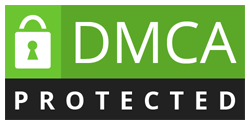Cov-lite ( Simple Quick Loan)
Cov-lite ( Simple Quick Loan)
Cov-lite (or "covenant light") is actually financial jargon for mortgage agreements that
do not contain the typical protective covenants for the advantage of the
lending party. Although traditionally banks have insisted on a variety
of covenants that permit them to intervene if the budget of the
borrower or the worthiness of underlying assets deteriorates, close to 2006 the
increasing strength of private equity firms and also the decreasing
opportunities for traditional corporate loans produced by banks fueled
something of the "race to the bottom", along with syndicates of banks contending
with each other to provide ever less invasive conditions to borrowers in connection
to leveraged buy-outs.
In the wake from the Financial crisis of 2007–08 growth in using
cov-lite loans stalled, but recently they have increased within popularity
again.

Cov-lite lending sometimes appears as riskier because it removes the first warning
signs lenders might otherwise receive through conventional covenants.
Against this, it's been countered that cov-lite financial loans simply reflect
changes within bargaining power between debtors and lenders, following through
the increased sophistication within the loans market where danger is quickly dispersed via syndication or credit derivatives.
Covenants
Methods vary, but characteristically cov-lite loans take away the requirement to report and gaze after loan to value, gearing, as well as EBITDA ratios.
More aggressively negotiated cov-lite loans may also remove
- events of default associated with "material adverse change" from the position
of the customer
- requirement to deliver annual accounts towards the banks
- restrictions on other 3rd party debt
- restrictions upon negative pledges
- requirements for bank approval to alter the form of the actual debtor group's
business
Cov-lite (or "covenant light") is actually financial jargon for mortgage agreements that
do not contain the typical protective covenants for the advantage of the
lending party. Although traditionally banks have insisted on a variety
of covenants that permit them to intervene if the budget of the
borrower or the worthiness of underlying assets deteriorates, close to 2006 the
increasing strength of private equity firms and also the decreasing
opportunities for traditional corporate loans produced by banks fueled
something of the "race to the bottom", along with syndicates of banks contending
with each other to provide ever less invasive conditions to borrowers in connection
to leveraged buy-outs.
In the wake from the Financial crisis of 2007–08 growth in using
cov-lite loans stalled, but recently they have increased within popularity
again.

Cov-lite lending sometimes appears as riskier because it removes the first warning
signs lenders might otherwise receive through conventional covenants.
Against this, it's been countered that cov-lite financial loans simply reflect
changes within bargaining power between debtors and lenders, following through
the increased sophistication within the loans market where danger is quickly dispersed via syndication or credit derivatives.
Covenants
Methods vary, but characteristically cov-lite loans take away the requirement to report and gaze after loan to value, gearing, as well as EBITDA ratios.
More aggressively negotiated cov-lite loans may also remove
- events of default associated with "material adverse change" from the position
of the customer
- requirement to deliver annual accounts towards the banks
- restrictions on other 3rd party debt
- restrictions upon negative pledges
- requirements for bank approval to alter the form of the actual debtor group's
business






















No comments